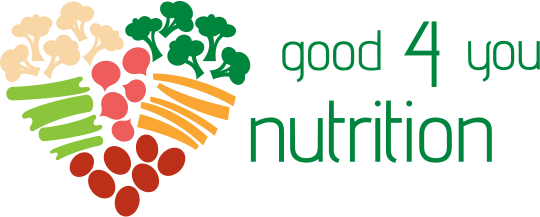FOOD | PORTIONS | TIMING – When did eating become so complicated?
Posted on January 30th, 2017
When I was growing up I don’t ever remember putting much thought into eating. We ate breakfast, morning tea, lunch, afternoon, dinner and dessert on a rare occasion (but you had to be good!).
When we went to school we ate the food provided in our lunch boxes at lunch breaks that we were given from our parents. Leaving school I was never too concerned about what I ate, saying this I was never a huge fan of “junk” foods to begin with as I was diagnosed with Coeliac Disease at a young age. I would eat when I was hungry and stick to my 3 mains meals with snacks in between if required.
It wasn’t until I started University where I noticed a huge shift and this is when I really started to think more about what I was eating, how much I was eating and when I was eating. The pressure to stay slim was definitely felt.
When I moved to Brisbane for work this is when I really noticed the pressure to watch what I was eating. I worked with people who were so focused on staying thin rather than being healthy. A lot of conversations would revolve around meals and exercise.
I always loved nutrition and I think this is what really influenced me to pursue my study in nutrition.
I get asked a lot from so many people questions surrounding, what food should I be eating, how much of each and when should I be eating. Everyone is different, everyone requires a slightly different routine based on lifestyle, exercise, medical conditions and metabolism for example. What works for me doesn’t work for everyone.
I see so much information about the benefits of fasting, eating a large breakfast, eating a large lunch, eating lots of small meals, eating a small dinner, sticking to a low carb high fat diet, eating paleo and the list goes on. It is no wonder why people are so confused and getting mixed up in ‘yoyo’ dieting.
What my day looks like!
- 7am – Large breakfast (as I am an early morning person and generally exercise in the morning)
- 11:30-12pm – Large lunch (I don’t always get time to snack a lot in the mornings)
- 3:30-4pm – Afternoon tea snack
- 6-6:30pm – Small Dinner
I personally find I need a big breakfast that is high in protein to stabilise my blood sugar levels. I occasionally have a morning tea snack depending on what I am doing and how much exercise I have done. I do essentially eat a higher protein, low carb and moderate fat diet as I find this works really well for me and my lifestyle. Saying this I do not deprive myself of anything. I do try and have a 12 hour gap between dinner and breakfast to allow my digestion system to adequately digest all my food and to give my liver a good chance to detoxify the body.
Healthy Advice
- Lunch time is often the time your metabolism is firing the most so big meals do well here.
- Snacking in between meals is not always necessary but as a rule of thumb I try not to go more than 5 hours without eating something, as blood sugar levels can become unbalanced and you are more likely to overeat later.
- Dinner is often the meal you don’t want to overeat at, as you are generally going to bed soon after and your digestive system slows. If you are a shift worker a good sized meal is often required.
- High protein, low carb and high fat diets can be great for some people but not everyone. Eating a lot of protein requires more water to be consumed as more urea is produced. Low carb is not ideal for those that exercise or those that are under excessive stress for example. High fat can be problematic for some people depending on medical conditions.
- Fasting is a tricky one. 12 hours is a good fast between dinner and breakfast, however going longer than this is where it can be problematic. Females need to be careful with fasting because of hormones and sometimes fasting for too long on a regular basis can cause issues with your metabolic rate if you are not eating the right foods during your eating window. I consider 14 hours to be safe between dinner and breakfast.
- Eating lots of smaller meals (e.g. 6 meals) a day does work great for some people especially those that have hyperthyroidism or Grave’s disease where there metabolic rate is quite high. It can also work well for people with Diabetes or gastrointestinal conditions where their digestion capacity is weakened.
- Other diets such as Paleo can be great for some people but hazardous for others. For example, some people cannot digest legumes and pulses as they ferment in their gut and cause gastrointestinal problems.
These are just some of the things that I tend to talk to people about a lot.
You are the best person to know what tends to work well for you and your lifestyle. If you do need assistance I can certainly help you find your happy balance 🙂 visit www.good4younutrition.com.au
Online Food Plans and Consultations are available 🙂
